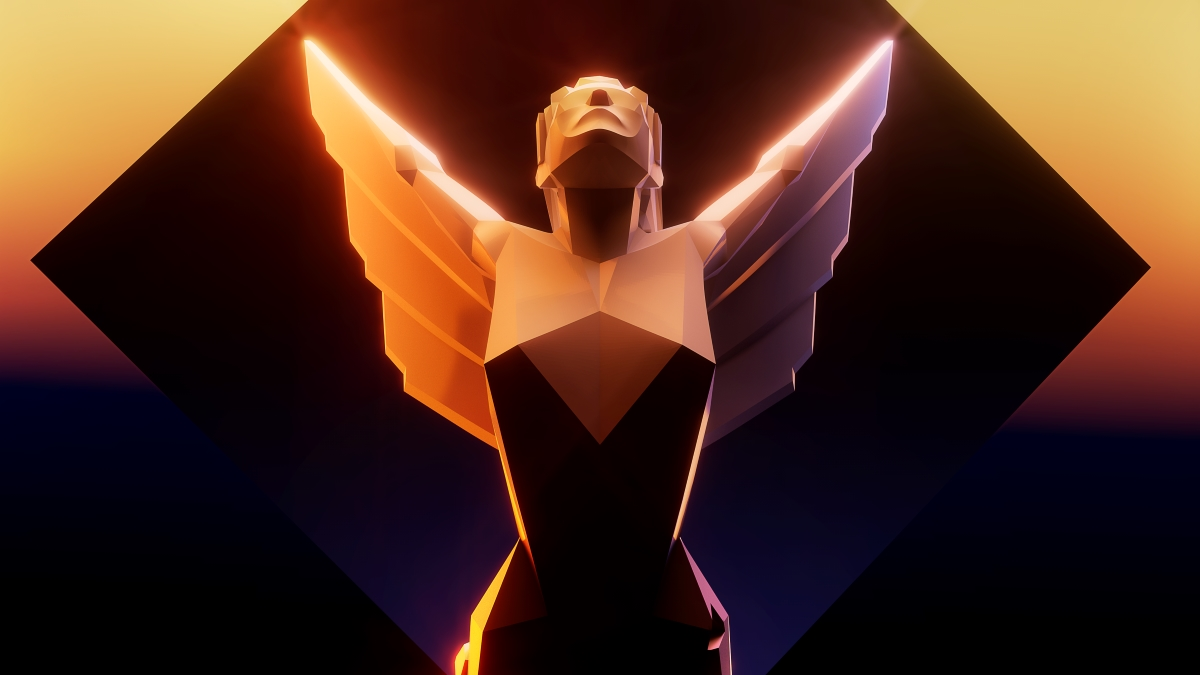The Game Awards 2023 concluded last night, with Baldur’s Gate 3 taking home the trophy for Game of the Year. It was a big moment for Larian, and during the winner’s speech, studio head Swen Vincke took time to honor those who put in so many hours and work, especially those who couldn’t see this award.
“Along the way, we lost quite a few people also, so we want to dedicate this to all the people that we lost,” Vincke said, specifically citing lead cinematic artist Jim Southworth, who died last month.
It was a touching moment, the kind that sticks with you from an awards show like this. And at the time, the prompter visible to speech winners displayed “Please wrap it up.” As Axios’ Stephen Totilo reports, this wrap-up sign would appear after 30 seconds, and start blinking after roughly 15 to 20.
For Vincke, at least, the play-off music did not start. Though if you watched the Awards last night, you probably heard it a few times. Developers of games released in 2023 got very little time on the stage, and that was for the few that made it up there; as with years past, many awards and winners were quickly read off in rapid succession. No speech. Only a short nod, and then on to the next.
What we did see for great stretches of time on-stage were upcoming games. Projects that were new, unreleased, sometimes even nascent. In one of the more infamous moments of the night, Hideo Kojima and Jordan Peele took the stage to show off OD, a new… experience? I’m still not sure what it was, aside from a video of people’s faces screaming and a door.
It was neat, and I’ve always loved a good tumble down the theory pit that comes from any Kojima teaser. But it was just people, talking on a stage, about a game. As Aftermath quick-mathed out, 13.5 30-second speeches could have taken place in the time that Kojima and Peele spent on stage. It was an awards show for 2023 that spent more time looking at unreleased games coming “soon” than games it was awarding.
Speeches themselves have long been some of the most memorable, human moments of The Game Awards. Sure, Christopher Judge went a little long in his speech, but it was also a great one. Greg Miller’s win for Trending Gamer in 2015 led to a great speech, calling for recognition of devs who don’t always get to take the stage. Ryan Green’s moving speech for winning the 2016 Games For Impact Award for That Dragon, Cancer still tears me up now, watching it years later.
Meanwhile, Neil Newbon’s heartwarming acceptance from last night, about representation and fans feeling seen in Baldur’s Gate 3 was met with a “wrap it up” and music. He wasn’t the only one, either.
Showrunner Geoff Keighley has addressed this now, the day after, saying that the music was played “too fast” for award winners’ speeches.
“By the way – I do agree that the music was played too fast for award winners this year, and I asked our team to relax that rule as the show went on,” Keighley stated on Twitter. “While no one was actually cut off, it’s something to address going forward.”
And at this point in the blog, the more cynical among you might be wondering why I treat this as a shock. Because frankly, the show has been leaning this way for some time. Every year, it feels like the awards buckle further under the weight of expectations. The Game Awards constantly serve as both press conference, a la its summertime sibling Summer Game Fest, and as the “Oscars” of video games.
Every year, the disparity becomes more apparent. Developers were loud about the issues this year, too. Prominent people in the industry voiced their discontent, seeing a show opt for star power over recognition.
“The Game Awards skipping through the awards and minimizing people’s years of work just to play ten minutes of bland ads is a joke,” said Clay Murphy, principal writer on Control and Alan Wake 2. “If this is going to be our industry’s big award show then we should demand better.”
And even going into the show, there were concerns The Game Awards 2023 wouldn’t rise to the moment. “Great for video games, bad for the video game industry” has become a mantra for 2023. Layoffs ran rampant through the industry throughout 2023, seeing many workers who make the experiences the Awards laud lose their jobs, and even some studios fully shut down.
Keighley had addressed developer struggles before, citing one particular developer’s own woes with their company, and responding to reports around Activision Blizzard by barring the company from that year’s show, aside from nominations.
“I also realize we have a big platform which can accelerate and inspire change,” Keighley wrote at the time. “We are committed to that, but we all need to work together to build a better and a more inclusive environment so everyone feels safe to build the world’s best games.”
Members of the Future Class, The Game Awards’ program to highlight the “bright, bold and inclusive” future of video games, signed an open letter urging the Awards to comment on the ongoing crisis in Gaza. As Kotaku’s Ethan Gach notes, it seems like an old tweet where The Game Awards account acknowledged the invasion of Ukraine was deleted at some point, between its original posting and now, though screencaps have preserved it. Neither Gaza, nor the wave of layoffs, were mentioned.
It would be incredibly easy for a viewer to ask, why should The Game Awards address this at all? The stick-to-video-games mentality, much like stick-to-sports, makes it easy to just focus on how the night should be a fun time for all, without all that “other stuff” involved.
For one, I don’t think it’s too much to ask more of the industry’s awards show. In fact, it’d really be asking the show to live up to its own premise. As stated on The Game Awards’ website, it is a show that “recognizes and upholds creative and technical excellence in the global video game industry.”
“We bring together a diverse group of game developers, game players, and notable names from popular culture to celebrate and advance gaming’s position as the most immersive, challenging and inspiring form of entertainment,” reads the awards show’s About page. “We strive to recognize those who improve the wellbeing of the community and elevate voices that represent the future of the medium.”
In some ways, it lives up to that; there were certainly notable names from popular culture, and the Future Class itself is a program I like, for the recognition it offers. (The seats they give them should be better, though.)
But for a show meant to recognize excellence, to acknowledge that which has been achieved and not that which could be achieved, it falls short. It felt like, as some have more succinctly put it, Winter E3.
There are other options out there, ones that do feel more representative of the achievement one would like to see. The DICE Awards, the Game Developers Choice Awards, and the BAFTAs all seem to nail it. Shows like The Spawnies work to uplift and celebrate developers from underrepresented communities.
But they, quite frankly, don’t have the same save-the-date pull for a broader audience that The Game Awards has. The Game Awards put itself in this position, maneuvering to be the biggest annual representation of the industry’s achievements, and that position does—or at least, should—entail responsibility.
Developers voiced that they were feeling let down, after a year where some of the industry’s finest work was met with hardship and constraints. Their struggles were not acknowledged, and their wins were hardly given time to sink in. Instead, Keighley iterated multiple times throughout the show that it was a great year for gaming. And now, here’s Gonzo.













Published: Dec 8, 2023 02:05 pm